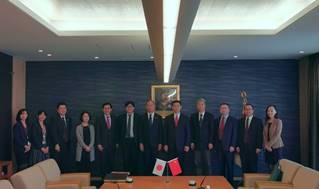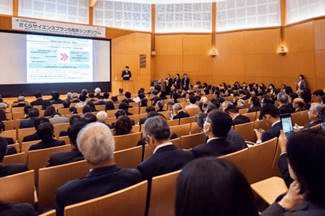
Recently, on the occasion of the “China-Japan Youth Exchange Promotion Year”, the “5th Anniversary Symposium of the Sakura Science Plan” sponsored by Japan Science and Technology Agency (JST) was held in the University of Tokyo.


Guo Dongming, President of DUT, has made a keynote report entitled “the ‘Schoolfellow Friendship’ Initiative to Jointly Foster World-class Talents for Chinese and Japanese Universities—Shared responsibility of Chinese and Japanese Universities in this Era” as a representative of the attending university leaders. He pointed out that the joint training for first-class talents by Chinese and Japanese universities is a realistic need for strengthening the friendly ties of the two countries, as well as the shared responsibility of Chinese and Japanese universities in the era. It is of great strategic significance to innovate the joint talent cultivation model and to promote exchanges among undergraduate, master and PhD students of the two countries.
Based on its own advantages, DUT has established five-year Japanese-intensive courses as well as organized academic and cultural exchange activities such as “China-Japan University Student Exchange Program”, which plays a leading role in the field of higher education between China and Japan. For many years, it has been the first choice for Japanese students who major in science and engineering to have short-term or long-term studies in China.
Guo Dongming also led a delegation to visited Sophia University, and signed an inter-university cooperation agreement and a memorandum of the student exchange.
FYI:
“Sakura Science Plan”:
The “Sakura Science Plan” initiated in 2014, which was fully funded by Japan Science and Technology Agency (JST). It invited young Asian students to Japan for short-term exchange to promote mutual understanding.
“Schoolfellow Friendship” Initiative:
DUT has developed the “Schoolfellow Friendship” Initiative in 2017 to jointly foster world-class talents for Chinese and Japanese universities to promote the integration of teaching, management and service of Chinese and foreign students. Chinese students and Japanese students will study under the same program, study in the same classroom, dine in the same canteen, share the same campus, etc.